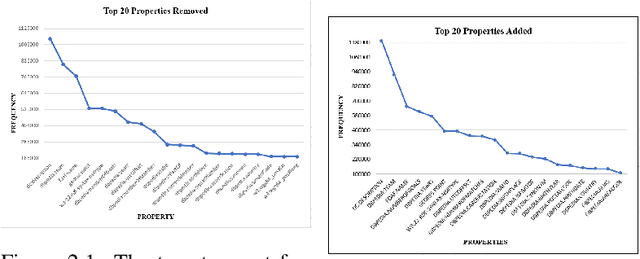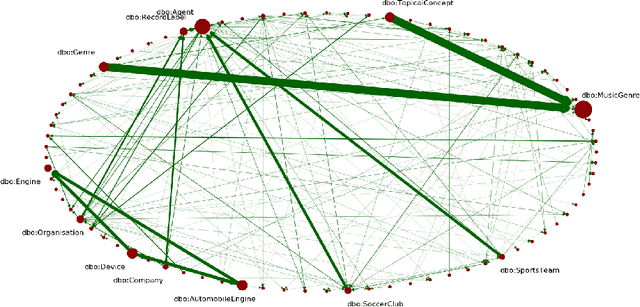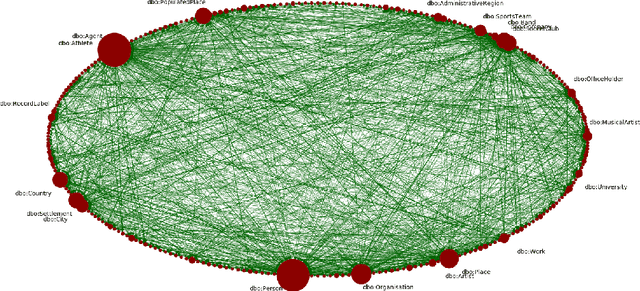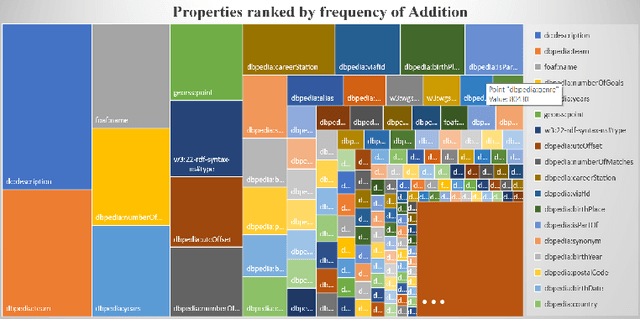Felix Bensmann
SoMeSci- A 5 Star Open Data Gold Standard Knowledge Graph of Software Mentions in Scientific Articles
Aug 20, 2021



Abstract:Knowledge about software used in scientific investigations is important for several reasons, for instance, to enable an understanding of provenance and methods involved in data handling. However, software is usually not formally cited, but rather mentioned informally within the scholarly description of the investigation, raising the need for automatic information extraction and disambiguation. Given the lack of reliable ground truth data, we present SoMeSci (Software Mentions in Science) a gold standard knowledge graph of software mentions in scientific articles. It contains high quality annotations (IRR: $\kappa{=}.82$) of 3756 software mentions in 1367 PubMed Central articles. Besides the plain mention of the software, we also provide relation labels for additional information, such as the version, the developer, a URL or citations. Moreover, we distinguish between different types, such as application, plugin or programming environment, as well as different types of mentions, such as usage or creation. To the best of our knowledge, SoMeSci is the most comprehensive corpus about software mentions in scientific articles, providing training samples for Named Entity Recognition, Relation Extraction, Entity Disambiguation, and Entity Linking. Finally, we sketch potential use cases and provide baseline results.
Knowledge Graphs Evolution and Preservation -- A Technical Report from ISWS 2019
Dec 22, 2020



Abstract:One of the grand challenges discussed during the Dagstuhl Seminar "Knowledge Graphs: New Directions for Knowledge Representation on the Semantic Web" and described in its report is that of a: "Public FAIR Knowledge Graph of Everything: We increasingly see the creation of knowledge graphs that capture information about the entirety of a class of entities. [...] This grand challenge extends this further by asking if we can create a knowledge graph of "everything" ranging from common sense concepts to location based entities. This knowledge graph should be "open to the public" in a FAIR manner democratizing this mass amount of knowledge." Although linked open data (LOD) is one knowledge graph, it is the closest realisation (and probably the only one) to a public FAIR Knowledge Graph (KG) of everything. Surely, LOD provides a unique testbed for experimenting and evaluating research hypotheses on open and FAIR KG. One of the most neglected FAIR issues about KGs is their ongoing evolution and long term preservation. We want to investigate this problem, that is to understand what preserving and supporting the evolution of KGs means and how these problems can be addressed. Clearly, the problem can be approached from different perspectives and may require the development of different approaches, including new theories, ontologies, metrics, strategies, procedures, etc. This document reports a collaborative effort performed by 9 teams of students, each guided by a senior researcher as their mentor, attending the International Semantic Web Research School (ISWS 2019). Each team provides a different perspective to the problem of knowledge graph evolution substantiated by a set of research questions as the main subject of their investigation. In addition, they provide their working definition for KG preservation and evolution.
 Add to Chrome
Add to Chrome Add to Firefox
Add to Firefox Add to Edge
Add to Edge